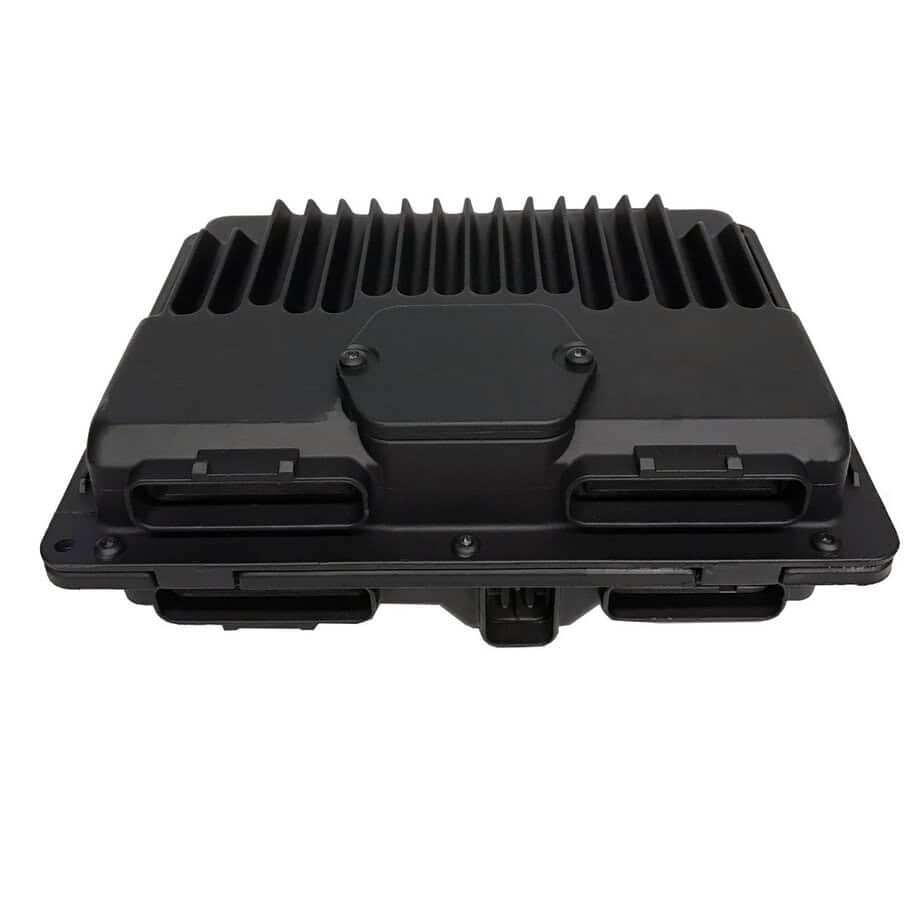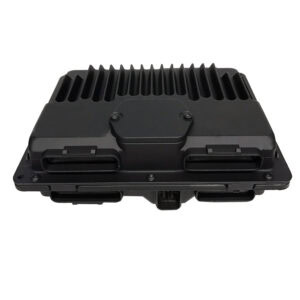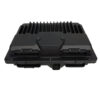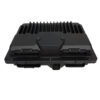Restore Your Truck’s Performance and Reliability
Is your GMC or Chevy truck running rough, stalling unexpectedly, or showing a persistent check engine light? A failing Powertrain Control Module (PCM) is often the culprit behind these frustrating and hard-to-diagnose issues. As the central computer for your engine and transmission, a faulty PCM can wreak havoc on performance, fuel economy, and drivability. This module, part number 16263494, is the direct-fit, reliable solution to get your vehicle running smoothly again.
We take the guesswork and hassle out of the replacement process. Unlike getting a module from a junkyard or a generic parts store, each unit we ship is pre-programmed to your vehicle’s specific Vehicle Identification Number (VIN). This means we load the latest, most stable software updates from GM, ensuring optimal communication between all your vehicle’s systems. This critical step eliminates the need for an expensive trip to the dealership for programming, making this a straightforward repair for both professional technicians and capable DIYers.
A Technician’s Notebook: The Phantom Misfire
I once had a 2000 Chevy Tahoe in the bay with a random misfire that the owner had been chasing for months. He’d replaced plugs, wires, the cap, and the rotor, but the issue persisted. Scans showed no consistent misfire on any single cylinder. After verifying fuel pressure and injector function, my gut told me to look at the PCM. On these older GM trucks, I’ve seen internal PCM driver failures cause weak or intermittent spark that doesn’t always set a specific code. We installed a VIN-programmed 1999 GMC 1500 PCM (the same family), performed the security relearn, and the phantom misfire was gone for good. It’s a reminder that sometimes the ‘brain’ is the source of the problem.
Is Your Vehicle Showing These Symptoms?
A failing PCM can manifest in various ways. If you’re experiencing any of the following, it might be time for a replacement:
- ✔ Check Engine Light is on with codes like P0601, P0604, or P0606 (Internal Control Module Memory Check Sum Error).
- ✔ Engine stalls, stumbles, or runs rough for no apparent reason.
- ✔ Unexplained drop in fuel mileage.
- ✔ The vehicle won’t start, but the battery and starter are good.
- ✔ Harsh or erratic automatic transmission shifting.
- ✔ Communication errors with your scan tool.
A Straightforward Guide to Installation
Installing your new PCM is a manageable job. While specific steps can vary slightly by model (e.g., pickup vs. van), the general process is consistent. Always consult a repair manual for your specific vehicle.
- Safety First: Disconnect the negative terminal from your vehicle’s battery to prevent any electrical shorts.
- Locate the PCM: On most trucks like the 1999 GMC 1500 Pickup, the PCM is located in the engine bay, typically on the driver’s side fender well or near the battery. On Express/Savana vans, it’s often in the LH rear of the engine compartment.
- Disconnect the Connectors: Carefully unclip the wiring harness connectors from the old module. These connectors have locking tabs; be gentle to avoid breaking them.
- Remove the Old Module: Unbolt the old PCM from its mounting bracket. Keep the hardware as you will need it for the new unit.
- Install the New PCM: Mount your new, pre-programmed PCM onto the bracket and secure it with the original hardware.
- Reconnect Everything: Firmly plug the wiring harnesses into the new module until they click into place. Reconnect the negative battery terminal.
- Perform Relearn Procedure: After installation, you MUST perform the vehicle’s security relearn procedure (often called Passlock or VATS). This syncs the new PCM with your vehicle’s anti-theft system and typically involves a sequence of turning the key on and off. This procedure is necessary for the engine to start.
Verified Vehicle Compatibility
This module is a direct replacement for part numbers 16263494, 16265035, 8162634940, 218-11787, and 21811787. It is confirmed to fit a wide range of GM trucks and vans. Please match your part number or verify your vehicle is on the list below to ensure proper fitment.
GMC 1500/2500/3500 PICKUP / SIERRA (1999-2000)
CHEVROLET SILVERADO 1500 (1999-2000)
CHEVROLET/GMC SUBURBAN (1999)
CHEVROLET TAHOE & GMC YUKON (1999-2000)
CADILLAC ESCALADE (1999-2000)
CHEVROLET ASTRO & GMC SAFARI (1999-2001)
CHEVROLET S10 & GMC SONOMA/S15 (1998-2000)
CHEVROLET BLAZER & GMC JIMMY/S15 (1998-2000)
OLDSMOBILE BRAVADA (1998-2000)
GMC ENVOY (1998-2000)
ISUZU HOMBRE (1998-2000)
CHEVROLET EXPRESS 1500/2500/3500 VAN (1999-2002)
GMC SAVANA 1500/2500/3500 VAN (1999-2002)
Note: Some 1998 models require build date option ZN4. Always verify your part number (ID 16263494) for exact compatibility.
How does the VIN programming work?
How does the VIN programming work?
After you complete your purchase, you will need to provide us with your 17-digit Vehicle Identification Number (VIN). Our technicians use this VIN to load the correct, factory-specified software and calibrations for your exact vehicle configuration. This ensures the module works perfectly right out of the box.
Is this a plug-and-play part?
Almost. Because we pre-program it to your VIN, you will not need a scan tool for software flashing. However, you MUST perform the vehicle’s security relearn procedure after installation. This is a simple key-on/key-off sequence that you can do yourself and is required for the engine to start.
Will this fix my check engine light?
If the check engine light is caused by an internal PCM failure (like code P0601), then yes, this module will resolve the issue. However, if the code is for a faulty sensor (like an O2 sensor or MAP sensor), you will still need to replace that sensor. This PCM will only fix problems directly related to the PCM itself.
Do I need to do a CASE relearn?
A Crankshaft Variation Relearn (CASE) may be required to prevent a P1336 trouble code. While many vehicles run fine without it, for optimal performance, it is recommended. Most local repair shops can perform this procedure quickly with a capable scan tool if needed.



